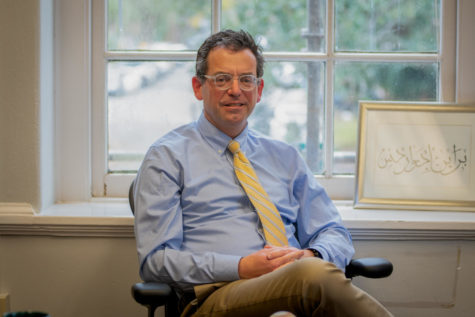The upcoming renovations to Newcomb Hall are not the only changes happening to the School of Liberal Arts. More slowly, the structure of its programs is evolving to become increasingly interdisciplinary.
Around this time last year, I spoke with the dean of the School of Liberal Arts, Brian Edwards, about the future of the school in the face of the university’s expanding science and engineering research enterprise. Then, Edwards expressed optimism about the school’s future, citing data that indicated Tulane is bucking national trends of falling enrollment. He attributed SLA’s success on this front to the introduction of programs like environmental studies, digital media practices, Africana studies and the strategy, leadership and analytics minor, which have proven remarkably popular among students. “Interdisciplinary” is a shared word on the websites of each of these programs.
It is worth reflecting on what interdisciplinarity means. The denotation of the word — building courses around complex issues rather than disciplines — is less important than its connotation. “Interdisciplinary” has become a buzzword in academia, one generally greeted with a positive reaction; it frequently appears alongside words with a similar effect, such as “dynamic,” “diverse” and “decentered.” Just because it has reached the status of a buzzword does not mean that it is senseless, however; the increasing prevalence of programs described as interdisciplinary is part of a warranted reaction to an organizational model pioneered by Harvard University in which departments are largely siloed and incentive structures for academics are narrow. Many academics, researchers and professionals — Edwards included — agree that current industry leaders are looking to hire graduates with broad skill sets.

“Employers from all sorts of industries, from finance to technology … often will tell me that they particularly want liberal arts majors, which is surprising to many people, because they have learned to do a number of things, including how to approach complicated problems in a nuanced or sophisticated way,” Edwards said in an interview this month.
To this end, the SLA will be piloting a “STEM Studies” cluster consisting of three to four new courses next year. Significantly, liberal arts and science and engineering professors will co-teach each of these courses. STEM studies is the product of a years-long conversation between Edwards and Kimberly Foster, dean of the School of Science and Engineering, about how to rectify the widely perceived antagonism between the liberal arts and STEM. According to Edwards, these new courses are meant to “model … what interdisciplinarity looks like in action.”
He continued: “From the liberal arts perspective, let’s not shy away from like actually engaging with the science in some kind of way, let’s have science faculty be there and approach it from that angle at the same time as showing that all of these areas [within STEM] have histories, have social contexts, have politics.”
The first course in the cluster, entitled “Brain in Human Life,” will be offered next fall. Professor Daniel Burnston and Professor Beth Wee, of the philosophy and neuroscience departments respectively, will co-teach the course, which aims to introduce students to the ways in which properties of the brain can inform our daily mental lives.
Two more courses are in development for spring 2025. One, co-taught by Professor Karissa Haugeberg of the history department and Dr. Amy Vaughan of the Tulane School of Medicine, will focus on reproductive health from humanistic and scientific perspectives. The other, “Climate and Water,” will be co-taught by Professor John Sabo of the ByWater Institute and Professor Laura McKinney of the sociology department, and will center on the impact of rising tides and changing coastlines on human populations. Edwards said discussions concerning the introduction of a third course about the intersection between computer science and the humanities are currently underway.
All of the courses are listed at the 2000-level under the INTD label, which allows students majoring in SLA to meet science requirements and students majoring in SSE to meet humanities requirements. The initiative plans to enroll 60 to 80 students in each course.
While there is currently no plan for the creation of a full-fledged program or certificate in STEM studies, Edwards is hopeful about where these four courses will lead.
“There’s something exciting that should be happening in these classes when the faculty come together and students come together,” Edwards said. “I’m super excited about what this might look like.”






















Leave a Comment